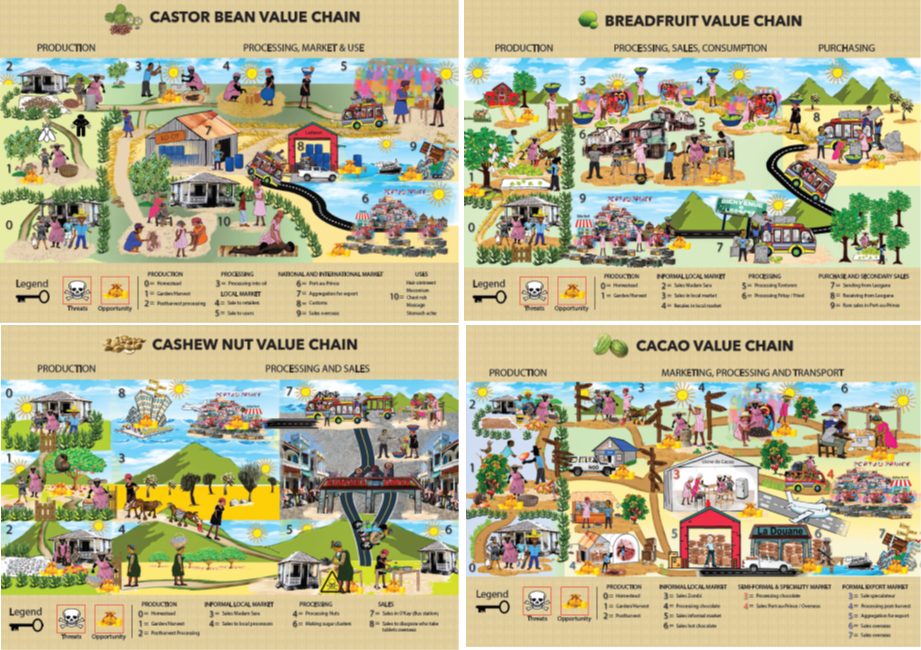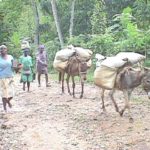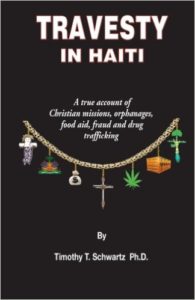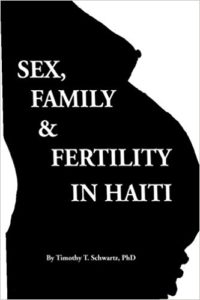This document presents research on four value chains in Haiti: cacao, cashews, breadfruit and castor bean oil (ricin). The research was conducted in the context of the ILO project FOPRODER (2015-2020), that works through cooperatives and associations in Haiti to provide professional training and promote resiliency of value chains. Arguably the most important information in the report is a review of the money international donors have invested to promote agricultural exports from Haiti, the failure of the efforts that money was intended to support, the paradoxical decline in exports, the repetition of these failures, the reasons for these failures (corrupt cooperatives that capture aid and the unique characteristics of Haiti’s peasant economy and rural livelihood strategies). and very importantly, the value that export crops have on the local market. Export crops fetch 3 to 5 times on the national market what exporters pay producers. The only way most exporters are able to get the produce from rural producers is through credit strategies and taking advantage of the lack of transport and storage for the produce (Haitian producers are limited by poor road systems and inefficient public transport and scarce to non-existent storage infrastructure and technology). Last but not least, the report provides extensive reviews of the misinformation, if not outright lies, that contractors, NGOs and private sector beneficiaries have promulgated to keep international donors investing in the agricultural value chain, investments that they benefit from both directly–by receiving grants and being paid to implement assistance programs, build infrastructure and plant trees–and indirectly in that the cooperatives and private sector entities have long monopolized the purchase and sale of the produce.
Castor-Oil-Cacao-Bread-Fruit-Cashews-ReportRicin-Huile-Cacao-Pain-Fruit - Noix de cajou-07-15-2020








